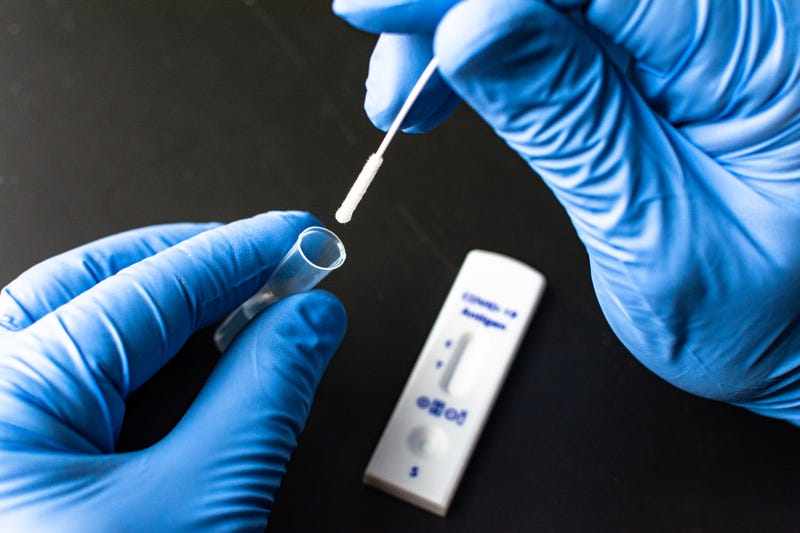
During the omicron surge, COVID-19 testing has become pivotal in staying safe from the virus. But how should you get tested and when?
Listen to the latest episode of "Bay Current" below.

KCBS Radio reporter Keith Menconi joined KCBS Radio's "Bay Current" on Tuesday to explain the testing process in the Bay Area and the challenges it's brought.
"Testing has been a huge point of confusion, especially the emphasis that you should get tested as a screening tool before you go to a gathering," said Menconi. "Now that we are at the omicron surge, we are receiving studies that the at-home rapid tests are not doing as good of a job at picking up the omicron infection."
Dr. Peter Chin-Hong, Professor of Medicine and Associate Dean for Regional Campuses at UCSF, and infectious disease expert, spoke with Menconi about the efficacy of at-home tests.
"Chin-Hong said there's no such thing as reducing your risk to zero," Menconi emphasized. "He said that if you're concerned with a certain window of time, you should be cautious in the days leading up to that meetup, so you know when you test on the day of that gathering, you can be certain that the infection would have progressed enough to be detectable by the test."
The consensus from medical experts such as Dr. Chin-Hong is that at-home tests are still an important tool in slowing down the virus, but people should not put their full faith in them. "You still want to isolate as much as you can, mask up, and get your shots," Menconi added.
The U.S. government has begun shipping at-home test kits, expected to be delivered in seven to twelve days. Each household can order up to four tests.

